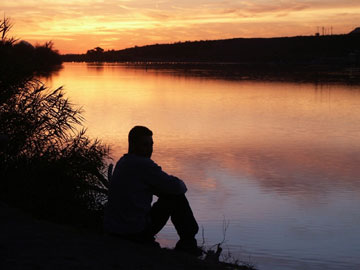
It happened again. I was in a second session with a young couple who have been struggling with uncomfortable and dissatisfying sex together. They were confused by what was happening in their shared sexuality, as many couples are, and frustrated because they didn’t know how to fix it themselves. Then they told me that their last couple’s therapist had advised them that if they built enough intimacy and emotional closeness their sexual issues would “take care of themselves”. AHHHH!!! Let me explain why this makes my head explode.
First, you should know that many (most?) psychotherapists out there have very limited understanding of the amazing vastness of human sexuality. Also psychotherapists and the field of psychology have been victim and perpetrators of sexual discriminations and basic close-mindedness and puritanical values for years. This is horrible and I am striving to do my part to change this for the field. But the point is, it is not an uncommon stance in psychology to say attachment and intimacy = happy sexual compatibility. As a sex therapist who has helped many people navigate their own complicated sexual desire, I know this is simply not true. As a human being who has had my own journey with love and sex and human closeness, I know this is not true. So why are therapists still saying it?
To claim that intimacy automatically leads to sexual compatibility disregards several key aspects of sex – one, it presumes that everyone is generally turned on by anyone they form a close relationship to; an argument that I think can only be made in a blatantly heteronormative mainframe that disregards what we have learned and should understand about sexual orientation and the limits of our desire. We simply cannot force desire where there isn’t one and attempts to shift desire to an “appropriate” partner are often disastrous. Two, this argument conflates all variations of human closeness into romantic sexual partnership, something that may be entertaining on soap operas but is quite limiting in real life. I am close to many people, in many different ways, and I do not have sexual desire for many of them. In fact with many people I develop a closeness that negates any sexual feelings, when someone begins to feel like family or a sibling for example.
Third, saying that intimacy and emotional closeness leads to sexual satisfaction ignores the variations of desire and how important they can be to our happiness. Most therapists who encourage couples to ignore clear sexual incompatibilities expect their clients to eventually adhere to a basic vanilla sex life – great for some, but deeply dissatisfying for others. This model privileges loving, eye-gazing, comfortable sex over other forms of sexual expression and connection. Loving and trusting your partner doesn’t mean that you both are going to be into restraints or submission play. Loving and trusting your partner also doesn’t mean you can easily give those things up. And being able to deep conversations and feel intimate doesn’t necessarily mean you do a great job talking about the subtleties and emotional vulnerabilities of sex and what you want. Not to mention that the therapist in question may have their own squeamishness and resistances to talking about sexual details and would just like to lump it all into one vanilla blur.
The reason psychotherapists who equate intimacy with sex irritate me so much is that I can see how clients get shamed by this. They feel ashamed that their love is not enough to naturally give them satisfying sex. They feel ashamed because they have desires that their partner can’t fulfill and they are being told that is unimportant in the bigger picture of emotional closeness. They feel ashamed because they are made to doubt their own desires yet again. This is not fair. The bad news is not all people who love each other are going to be great sexual matches. There is still plenty to explore in how to be and stay in relationship within that reality, but you need a support person who will go into those intricacies with you. The good news is your desire for something different than someone else is not something you have to ignore. At least not with me.

This story makes me smile: Children’s book author Maurice Sendak received a card from one of his young fans. It was special to him and so Sendak took time creating a little drawing to send back to the boy with a note that said how much he loved the boy’s card. Soon after, Sendak got a note from the boy’s mom, saying “Jim loved your card so much he ate it”. It should be no surprise that as an author who celebrates the wildness in children, and all of us, Sendak has said this was the best compliment he ever received.
It’s not a coincidence that many of our descriptions of passion include allusions or metaphors of eating. The instinct to take something inside of us, to make it a part of us, to feed ourselves from it, all reflect feelings of deep excitement and passion. To take an experience in and leave nothing behind, to fully ingest it – how many of us forget how to do this as we get older? Especially now that we are constantly encouraged to document and share each experience, however mundane, and more and more people believe “if I didn’t post it, it didn’t really happen”. How might Jim’s experience of devouring joy been changed if his mother had required time to pose for a picture followed by a post where she could monitor likes? Even the very adult instinct to respectfully save the picture (because it could possibly have paid for Jim’s first car) would change the flow of pure expression of irrational joy. How does our instinct to hold on to something, to keep it safe and sound, change moments of passion?
What do you love so much you want to gobble it up? What bring you such joy that you don’t feel any need to share it with others? When do you break open moments of such excitement that the future doesn’t even occur to you and there is no need to hold anything back for later? What kind of love has come your way which made you feel like you took it into yourself and it became a part of you? What holds you back from devouring passion?
Experiment : With a partner play with touching them in a way that allows you to feel like you are taking them in through your hands and skin. Imagine that you can feed on them and they will never be depleted. Breathe them in. Taste them; no biting, unless they ask! Imagine for right now it is ok to be a wild thing devouring what it wants.

There is a word in the Yaghan language of Tierra Del Fuego – mamihlapinatapei. While I have no clue how to pronounce it; I really like this word, which means a look exchanged between two people who both desire to initiate something but both are unwilling to offer themselves. This may sound like a depressing thing, but I think we could stand to get more comfortable with the idea of mamihlapinatapei.
We Americans are not so great at longing. We are conditioned to focus on getting. But over the course of human history there has been a lot of longing, and there will always continue to be unrequited, unsatisfied longing. We can see this as failure, as a problem unsolved. Or we can see it as a part of the human experience and proof that the world is full and abundant – so full and abundant that we cannot HAVE it all.
There is a long literary tradition focused on long suffering yearning and unexpressed desire. I admit I found much of this irritating, too many high neck Victorian dresses, too much pining and martyrdom, too much repression. And I certainly don’t want us to return to hidden sexual drives, hidden bodies, or social structures that enforce separation and make so much loving impossible. But as I have gotten older, I have realized that there is something to learn from expressions of yearning, especially the type of yearning mamihlapinatapei speaks of – when one part of our self wants one thing and another part feels in conflict with that.
How many damaging sexual choices might be avoided if we grew up with an awareness of this concept? What if we were taught to expect moments of desire that we will not choose to act on? What if we actually enjoyed the tension of longing for something? What if the wordless exchange in a glance between two people that contained possibility but not action was considered a valuable, even beautiful, experience?
I want people to have full shameless sexual expression and satisfying sexual efficacy. I want people to get what they want. But I also want people to be so turned on by life and the world around them that they will experience some overflow, some sense of just taking it in without taking action. And I would like us to see that as potent, capable of building us up and filling us with energy of potential and private wonderings, rather than as a sign that life is passing us by. Life is here for you, with more than you can experience in one lifetime. And that is okay. Sometimes a passing look is creates a powerful memory of another version of passion manifest simply inside of you.

There is a word in the Yaghan language of Tierra Del Fuego – mamihlapinatapei. While I have no clue how to pronounce it; I really like this word, which means a look exchanged between two people who both desire to initiate something but both are unwilling to offer themselves. This may sound like a depressing thing, but I think we could stand to get more comfortable with the idea of mamihlapinatapei.
We Americans are not so great at longing. We are conditioned to focus on getting. But over the course of human history there has been a lot of longing, and there will always continue to be unrequited, unsatisfied longing. We can see this as failure, as a problem unsolved. Or we can see it as a part of the human experience and proof that the world is full and abundant – so full and abundant that we cannot HAVE it all.
There is a long literary tradition focused on long suffering yearning and unexpressed desire. I admit I found much of this irritating, too many high neck Victorian dresses, too much pining and martyrdom, too much repression. And I certainly don’t want us to return to hidden sexual drives, hidden bodies, or social structures that enforce separation and make so much loving impossible. But as I have gotten older, I have realized that there is something to learn from expressions of yearning, especially the type of yearning mamihlapinatapei speaks of – when one part of our self wants one thing and another part feels in conflict with that.
How many damaging sexual choices might be avoided if we grew up with an awareness of this concept? What if we were taught to expect moments of desire that we will not choose to act on? What if we actually enjoyed the tension of longing for something? What if the wordless exchange in a glance between two people that contained possibility but not action was considered a valuable, even beautiful, experience?
I want people to have full shameless sexual expression and satisfying sexual efficacy. I want people to get what they want. But I also want people to be so turned on by life and the world around them that they will experience some overflow, some sense of just taking it in without taking action. And I would like us to see that as potent, capable of building us up and filling us with energy of potential and private wonderings, rather than as a sign that life is passing us by. Life is here for you, with more than you can experience in one lifetime. And that is okay. Sometimes a passing look is creates a powerful memory of another version of passion manifest simply inside of you.

Most of us have approached our dating lives with an image of sexual chemistry and desire that works like spontaneous combustion. It just suddenly hits without warning or intention and burns hard and fast, without our even trying – and can go out just as quickly. Our adult relationships may be better served by seeing sexual chemistry as a bit more complex and alchemical than that. We may not be able to create sexual chemistry anywhere with anyone, but we can actively engage with elements that build a chemical reaction we are hoping for.
Think of it like building a fire. You can sit and wait for lightening to strike and get the fire going. But this is not a great plan. It makes more sense to bring components together that will create fire. The fire will be just as hot, but you do have to put some effort and care into it.
You need fuel for the fire to burn strong and steady – Think of this as your body and your health. Are you giving your body what it needs to feel desire? Are you getting sleep, good food, exercise that is energizing not depleting, are you handling your stress? Basically, is your body ready and available to act on sexual chemistry?
The fire needs oxygen to stay alive – This relates to giving actual time and space for sexuality. You will not feel desire and chemistry while you are running from one chore to the next. Expecting to feel a lot of sexual chemistry on demand while overbooked and overworked, when you haven’t spoken to your partner in person for 3 days, when your mind is somewhere else, is like expecting lightening to strike – within a 30 minute window that is convenient for you. You need to actively create space, breathing room so to speak, for sex in your life.
Tinder will help the fire catch quicker – These are things in your life that you know make you feel more sexual, more connected or drawn to your partner, and sexier in general. Craft reminders of sensual pleasure into your day. Touch your partner as you pass by them, whisper about what you might do later in their ear. Make a point to build these things into your life so that, when the time is right, the spark can quickly catch and turn into a flame.
The Spark – Yes, the mysterious element that causes the flame to burst forth. There are many things we do that smother our natural sexual sparks and there are things we can do to encourage them, but who we desire and why remains, in large part, a mystery. There are different kinds of chemistry and there are different kinds of sex and what we want and are drawn to can change over time. One person may cause trembling in your thighs, another may cause you to feel playful and teasing, another warm and giving. Why him? Why her? Enjoy finding out…
Imagine this scene…The lights are low. You have just taken a shower and your skin is tingling from the hot water. You smell good. You put on some music and minimal clothing. You are in the mood. You go to find your partner. You walk, no you sexy thing, you strut into the room. Your partner doesn’t look up. They sit slack, eyes glued, face illuminated by the screen. You say, “hey” (very smooth by the way). Their response is barely comprehensible as they are typing and speaking at the same time. You consider throwing something at their head, no, the screen. You are no longer in the mood.
Sound familiar? Maybe a little bit? Possibly you have played both roles in this scenario. Honestly the biggest sexual problem I see couple’s having these days is that they have so many distractions that they let sexual opportunities pass by unnoticed. Let’s just admit it, it is very unappealing to initiate any attempts at seduction when you are competing with the numbing allure of a screen. I am not talking about porn here, which actually might be easier to interrupt with a real life sexual invitation. I am talking about TV shows, video games, Facebook, work emails, Awkward Family Photos and, oh damn you, Pinterest. All great distractions. But we need to be careful that they are not distracting us right out of having an actual vibrant physical relationship.
It is time to be honest with ourselves that sitting in front of screen entertainment is not us “being available”. Making time for sex requires freeing your attention. It means being aware of your body, your partner, the shifts in energy between you. The best thing you can do for your sex life? Plan to unplug from any distraction besides your partner. Do this regularly and often. Be vigilant about looking up from other things and taking in the person sitting next to you. Remind yourself that sex can be relaxing, rejuvenating, and entertaining too. After all, sexting doesn’t let you feel their breath on your earlobe or see their eyes widen. I promise you Facebook will be there tomorrow. Then you can post with a smile on your face and your partner on your mind.
In the morning as I sat down to write my cat insistently, as is her way, demanded my attention. While turning around she hit me in the face with her tail several times, bumped my hands, stepped on the keyboard and became so overexcited about getting me to pet her belly, she fell off my lap in an undignified thump. After which she jumped right back on with the same enthusiasm as before, enthusiasm to love and be loved. And then I thought about my clients and how often in session I hear about how afraid they are to be seen as less than perfect, as clumsy or capable of mistakes. And how this leads them to hold themselves back, from their partners but also from their own enthusiasm and passion and therefore from their own ability to love.
What I hear a lot about in therapy are the limitations people put on themselves, the smaller and smaller worlds they create to fit in only the things they feel are acceptable. I see sex lives that have dwindled to a series of “safe” interactions that won’t require anyone to risk being embarrassed. I see couples who say that they don’t know each other anymore because they have each been editing what they say and do for so long. I see people starting relationships by hiding the fullness and complexity of who they are and squashing the wonder and fun that could be there.
When we are editing and watching ourselves with a critical eye, not allowing certain sides to come through, we are not fully available for our life. Enthusiasm and passion require that we throw ourselves in, flaws and all, and see what happens. They ask of us that we let our world be big, big enough to contain what may grow and develop. Whatever flaws you have are so much less important than the adventure you could be having if you let yourself. Love your flaws as a sign that you are fully present and engaging in life. If you don’t tumble off the metaphorical lap now and then, maybe you aren’t letting yourself love with enough enthusiasm.